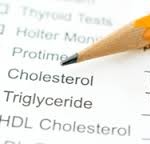 The heart is the mainstay of all of your bodily systems. This muscular organ works hard to pump your blood through your blood vessels providing oxygen and nutrients for your entire body. Cardiac care is essential in restoring its operating system at the first sign of any disturbances. The heart beats, on average, approximately 72 beats in a minute. If you live past the age of 65 your heart will beat more than 2 billion times in your life. Taking care of your heart is the most important thing that you can do for your body as all of your other systems relies on this very special organ in the human body.
The heart is the mainstay of all of your bodily systems. This muscular organ works hard to pump your blood through your blood vessels providing oxygen and nutrients for your entire body. Cardiac care is essential in restoring its operating system at the first sign of any disturbances. The heart beats, on average, approximately 72 beats in a minute. If you live past the age of 65 your heart will beat more than 2 billion times in your life. Taking care of your heart is the most important thing that you can do for your body as all of your other systems relies on this very special organ in the human body.
The symptoms of heart disease should never be ignored and require immediate attention and action. It is important to be able to recognize them and seek care for them as soon as possible and without delay.
Explained below are some different types of cardiac situations that can take place with a brief description of their symptoms:
Myocardial infarction (heart attack): Nausea, vomiting, anxiety, shortness of breath, sweating, weakness, indigestion, pressure in the chest or arm, radiating pain in the throat, jaw, or arm to the back area, irregular and/or rapid heart rate. Sometimes there can be no symptoms whatsoever with a heart attack. Typically, this occurs more often in people with diabetes.
 Coronary artery disease: The condition of athersclerosis or plaque build up in the arteries of the heart that can result in pressure in the chest, irregular or rapid heart rate, nausea, sweating, dizziness.
Coronary artery disease: The condition of athersclerosis or plaque build up in the arteries of the heart that can result in pressure in the chest, irregular or rapid heart rate, nausea, sweating, dizziness.
Atrial fibrillation: A heart arrhythmia that can lead to an increased risk of stroke, weakness, pressure in the chest, fatigue, palpitations, shortness of breath.
Heart valve disease: A condition when the valves in the heart between the atrium and ventricles are diseased and unable to perform their function will result in pressure in the chest area, dizziness, palpitations, shortness of breath, sudden, increased weight gain, abdominal, ankle or foot edema.
Arrhythmias: A condition when the heart beats irregularly results in dizziness, shortness of breath, pressure in the chest, fainting, fatigue, palpitations or a thumping in the chest.
Taking care of a man’s cardiac system involves both prevention and treatment. All men should be educated about the signs and symptoms of a cardiac event or the precursor symptoms that they might experience before a major event.
Cardiac care in men differs from a woman’s care, as they are more likely to have invasive procedures due to a decreased risk in complications. They are less likely to have diabetes, and they have larger blood vessels. As well, men tend to seek care and counseling more readily than a woman does.
Men can help themselves in regards to their cardiac care by seeing their physician regularly, good nutrition, and exercise. Reducing stress levels and not smoking is also recommended. By practicing the above health measures, a person, particularly a man, can reduce his risk of heart disease. These and other lifestyle changes will ensure a long, healthy, life.
Resources:
Aetna: Gender Differences in Cardiac Care
http://womenshealth.aetna.com/WH/ihtWH/r.WSIHWOOO/st.36121/t.36262.html
Columbus Monthly: Men’s Health – Cardiac Care
http://www.columbusmonthly.com/April-2012/Mens-health-Cardiac-care/
Center for Disease Control and Prevention: Heart Disease facts
http://www.cdc.gov/heartdisease/facts.htm
University of Michigan: Women’s Heart Health
http://www.uofmhealth.org/medical-services/womens-health-heart
European Society of Cardiology: Women are more Likely to Die of Myocardial Infarction Than Men
MayoClinic: Heart Disease
http://www.mayoclinic.com/health/heart-disease/HB00040


Leave a Reply